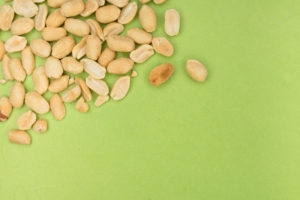
Roche acquires 89bio for US$3.5bn
Roche has signed a definitive merger agreement to acquire 89bio and its Phase III candidate pegozafermin, an FGF21 analogue for the treatment of moderate to severe metabolic dysfunction-associated steatohepatitis (MASH). The deal is expected to close in Q4 2025.
Under the agreement, swiss Roche AG will pay US$14.50 per share in cash, equal to an equity value of US$2.4bn. Shareholders will also receive a non-tradeable contingent value right (CVR) of up to US$6.00 per share, representing a total deal value of up to US$3.5bn. The price represents a 52% premium over 89bio’s 60-day VWAP on 17 September 2025.
Each CVR entitles holders to milestone payments:
-
US$2.00 per share upon first commercial sale of pegozafermin in F4 MASH cirrhosis (by March 2030)
-
US$1.50 per share when annual net sales reach US$3.0bn globally (by December 2033)
-
US$2.50 per share when annual net sales reach US$4.0bn globally (by December 2035)
If achieved, these payments represent up to US$1.0bn in additional consideration.
Technology
Pegozafermin is a glycoPEGylated fibroblast growth factor 21 (FGF21) analogue currently in Phase III clinical trials for patients with moderate and severe MASH fibrosis (F2 and F3 stages) and cirrhosis (F4 stage). The drug is designed to combine anti-fibrotic and anti-inflammatory activity with a favourable safety profile. Roche plans to integrate the candidate into its cardiovascular, renal and metabolic (CVRM) portfolio and explore combination development with incretins.
Mode of action
Pegozafermin mimics the endogenous hormone FGF21, a regulator of energy and lipid metabolism. By binding to FGF receptors in complex with the co-receptor β-Klotho, it enhances fatty acid oxidation, reduces hepatic fat accumulation, and improves insulin sensitivity. The anti-fibrotic and anti-inflammatory effects are intended to address progression of liver fibrosis and metabolic dysfunction.
Competitive landscape
FGF21 analogues are in development by companies including Akero, which is advancing efruxifermin in Phase III. Advantages of FGF21 analogues include broad metabolic benefits and anti-fibrotic activity. Limitations are linked to injection-based administration and the challenge of long-term tolerability. Compared to incretins such as GLP-1 receptor agonists, FGF21 analogues may deliver stronger anti-fibrotic effects, while incretins are established for weight loss and glycaemic control.
Market outlook
MASH affects an estimated 5–7% of the global adult population. More than 75% of patients live with comorbidities such as obesity and type 2 diabetes.
According to IQVIA, the United States will have an estimated ~14 million patients with F2–F4 MASH by 2030. According to GlobalData, drug sales for MASH across the seven major markets (7MM) were approximately US$802.3m in 2022. These published figures from IQVIA and GlobalData underpin the assessment that the US MASH pharmacotherapy opportunity reaches multi-billion-dollar scale as treatment options and diagnosis rates expand.
Several pharmaceutical companies are in Phase III trials in the same indication. Novo Nordisk reported from the Phase III ESSENCE trial that semaglutide 2.4 mg achieved resolution of steatohepatitis without worsening of fibrosis in 62.9% of patients versus 34.3% on placebo, and fibrosis improvement without worsening of steatohepatitis in 36.8% versus 22.4%. Boehringer Ingelheim and Zealand Pharma reported from a Phase II trial that survodutide achieved steatohepatitis resolution without worsening of fibrosis in 47–62% of patients versus 14% on placebo, and fibrosis improvement in 34–36% versus 22%. Akero Therapeutics has advanced efruxifermin into Phase III trials, but no Phase III efficacy results have been published. Boston Pharmaceuticals is preparing Phase III entry for efimosfermin alfa. For pegozafermin, no Phase III readout has yet been published.


 Roche
Roche
